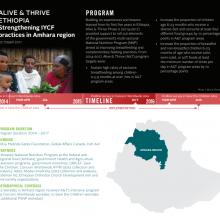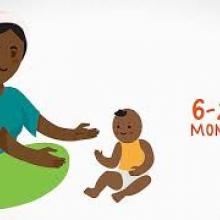Journal article
Jan 26 2024

Overpromoted and underregulated: National binding legal measures related to commercially produced complementary foods in seven Southeast Asian countries are not fully aligned with available guidance (Blankenship J, et al. Maternal & Child Nutrition. 2023)
Journal article
Jan 08 2024

Bridging the evidence-to-action gap: enhancing alignment of national nutrition strategies in Cambodia, Laos, and Vietnam with global and regional recommendations (Nguyen TT, Huynh NL, et al. Frontiers in Nutrition. 2024)
This journal article details Alive & Thrive’s examination of the alignment of recent National Nutrition Strategies and Action Plans (NNS) in Cambodia, Laos, and Vietnam with recent global and regional recommendations and standards with a focus on maternal, infant, and young child nutrition an
Journal article
Feb 25 2020

Different combinations of behavior change interventions and frequencies of interpersonal contacts are associated with infant and young child feeding practices in Bangladesh, Ethiopia, and Viet Nam (Kim, S., 2019. Current Developments in Nutrition)
This article demonstrates that exposure to interventions matters for impact, but the combination of behavior change interventions and number of interpersonal counseling contacts required to support behavior change in infant and young child feeding are context-specific.
Journal article
Feb 11 2020

Suboptimal infant and young child feeding practices in rural Boucle du Mouhoun, Burkina Faso: Findings from a cross-sectional population-based survey (Sarrasat S., 2019. PLOS One)
Mothers in the rural Boucle de Mouhoun Region of Burkina Faso had low levels of knowledge of IYCF and practices, according to this study: 60% of children had the minimum meal frequency, while only 18% benefited from the minimum dietary diversity and 13% received minimum acceptable diet.
Video
May 29 2018
Brief
Oct 15 2017

Strengthening IYCF practices in Amhara region of Ethiopia
This information card highlights data from an A&T project with Concern Worldwide that was implemented in 12 woredas between 2014 and 2016.


